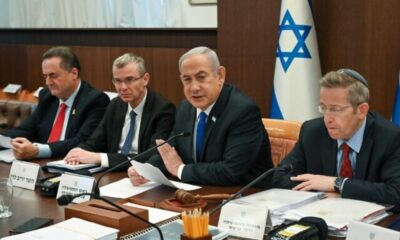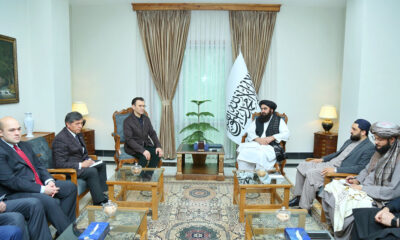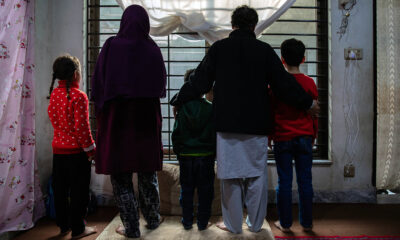Latest News
Khalilzad wraps up regional trip, highlights need to keep republic intact
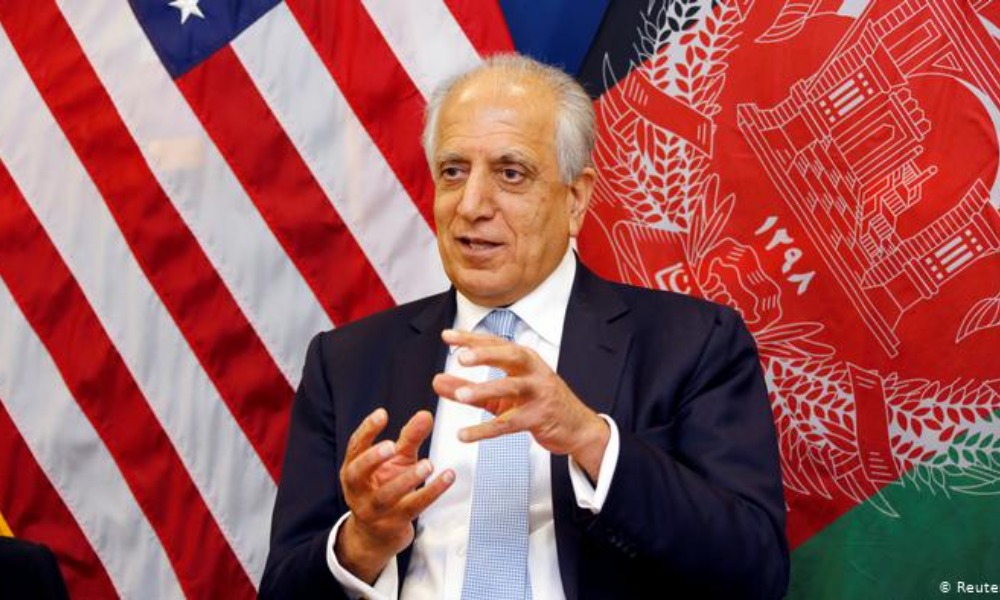
US peace envoy Zalmay Khalilzad said in a series of tweets he has wrapped up his latest trip – to Tashkent, Doha, Kabul, and Dushanbe – with a stop in Berlin – which was focused on building regional consensus on the Afghan Peace Process.
Khalilzad said there is “a unique international consensus for peace, rooted in the support for a negotiated settlement, an end to violence, and rejection of any attempt to impose a military solution”.
He said: “Afghan leaders from all sides of the conflict should seize this opportunity and negotiate a political settlement to end their 40 yearlong war.”
Khalilzad also stated that “if the Taliban do not choose peace, a future based on consensus and compromise, then we will stand with Afghans who strive to keep the Republic intact. Republic political unity is a must.”
“International consensus does not stop at peace. The world remains steadfast in its support of Afghanistan as the country enters a new phase,” Khalilzad said.
In addition to this, the US State Department also issued a joint communique by the US, the European Union, NATO, Norway and the UK on the Afghan Peace Process.
According to the communique, special envoys and special representatives of the United States of America, European Union, France, Germany, Italy, NATO, Norway, and the United Kingdom met in Berlin on Thursday where they exchanged views on the current status of the Afghanistan peace process and discussed ways to support the Afghan people’s desire for a just and lasting peace.
The participants confirmed that such a peace can only be achieved through an inclusive, negotiated political settlement among Afghans and highlighted the need to accelerate the pace of the Afghan-led and Afghan-owned peace negotiations and committed to work with the Afghan government and the Taliban, and other Afghan political and civil society leaders to reach a comprehensive and sustainable peace agreement and political compromise that ends the war.
The participants called for the immediate resumption, without pre-conditions, of substantive negotiations on the future of Afghanistan with the aim to develop and negotiate realistic compromise positions on power sharing that can lead to an inclusive and legitimate government and a just and durable settlement.
They also strongly condemned the continued violence in Afghanistan “for which the Taliban are largely responsible” and demanded all parties to take immediate and necessary steps to reduce violence and in particular, to avoid civilian casualties in order to create an environment conducive to reaching a political settlement.
Participants called upon the Taliban to stop their undeclared spring offensive, to refrain from attacks against civilians, and to stop immediately all attacks in the vicinity of hospitals, schools, universities, mosques and other civilian areas.
In particular, participants demanded an immediate end to the campaign of targeted assassinations against civil society leaders, religious scholars, journalists and other media workers, human rights defenders, healthcare personnel, judicial employees and other civilians.
The participants also reiterated that during the withdrawal of foreign troops, the safety of international forces must be ensured and that any Taliban attacks on the troops during this period will be met with a forceful response.
Participants stressed that the process of the troop withdrawal must not serve as an excuse for the Taliban to suspend the peace process and that good-faith political negotiations must proceed in earnest.
International Sports
IPL 2026: Franchise sales gather pace as global investors circle teams
Royal Challengers Bengaluru (RCB) has been put on the market by its current owner and is estimated to be worth up to $2 billion.

Developments off the field are drawing growing attention ahead of the 2026 Indian Premier League season, with two franchises — Royal Challengers Bengaluru and Rajasthan Royals — formally up for sale and attracting interest from high-profile domestic and international investors.
Royal Challengers Bengaluru (RCB), one of the league’s most recognisable teams, has been put on the market by its current owner, Diageo’s United Spirits Ltd, following a strategic review. The sale process is expected to be completed by the end of March 2026. Market estimates suggest the franchise could be valued at around $2 billion, reflecting the soaring commercial value of the IPL.
Several bidders have been shortlisted for RCB, including investment groups led by Indian industrialists, private equity firms and overseas sports owners. Among those reported to have shown interest is a consortium linked to the Glazer family, co-owners of English Premier League club Manchester United. Non-binding bids have already been submitted, with binding offers expected in the coming weeks.
Rajasthan Royals (RR), winners of the inaugural IPL title in 2008, are also in the process of being sold. A shortlist of potential buyers has been finalised, featuring a mix of Indian and international investors, including private equity firms, entrepreneurs and media-linked groups. The franchise is expected to attract a valuation of more than $1 billion, according to market estimates.
Final bids for Rajasthan Royals are anticipated in early March, while the RCB transaction is expected to move into its final phase later this month. Any change in ownership will require approval from the Board of Control for Cricket in India (BCCI).
The potential sales mark one of the most significant ownership shake-ups in IPL history and underline the league’s growing appeal as a global sports investment as preparations continue for the 2026 season.
Latest News
FM Muttaqi meets Uzbek Central Asia Institute Chief, stresses stronger bilateral cooperation
During the meeting, the two sides discussed ways to further strengthen political and economic cooperation, as well as key regional issues.
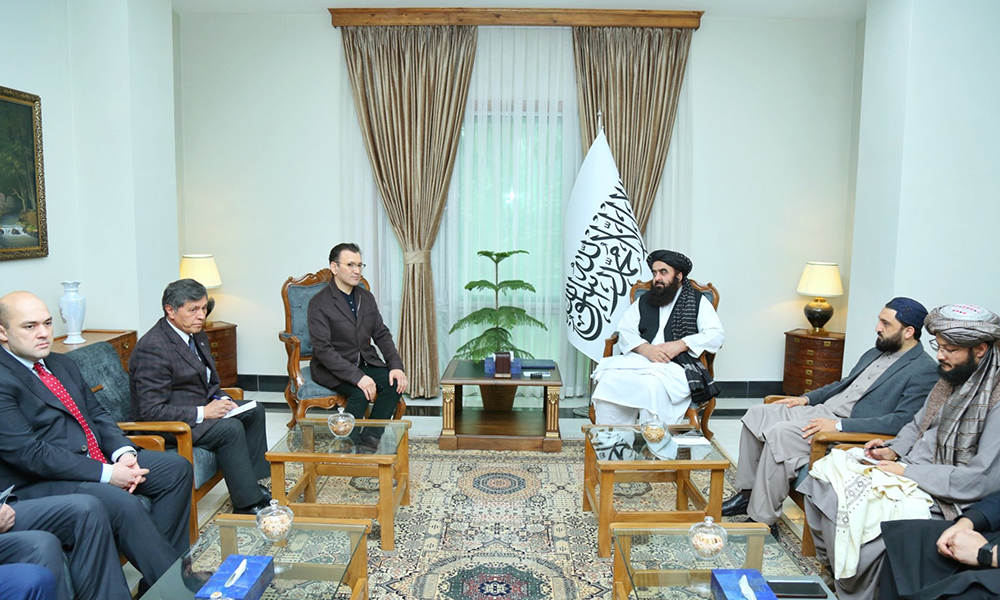
Afghanistan’s Minister of Foreign Affairs, Amir Khan Muttaqi, has met with a delegation led by Joulan Vakhabov, head of Uzbekistan’s International Institute of Central Asia and adviser to the country’s deputy president.
During the meeting, the two sides discussed ways to further strengthen political and economic cooperation, as well as key regional issues.
Muttaqi said Uzbekistan has adopted a positive and goodwill-based policy toward Afghanistan, expressing hope that bilateral relations and cooperation would continue to expand.
He also underscored the important role of research institutions in promoting mutual understanding, enhancing cooperation, and developing a realistic assessment of regional dynamics.
For his part, Vakhabov praised the progress and stability in Afghanistan and voiced optimism that trade between the two countries would increase further in the current year.
Latest News
Pakistan to repatriate nearly 20,000 Afghans awaiting US resettlement
Authorities will also share verified data of the affected individuals with relevant departments to support implementation.
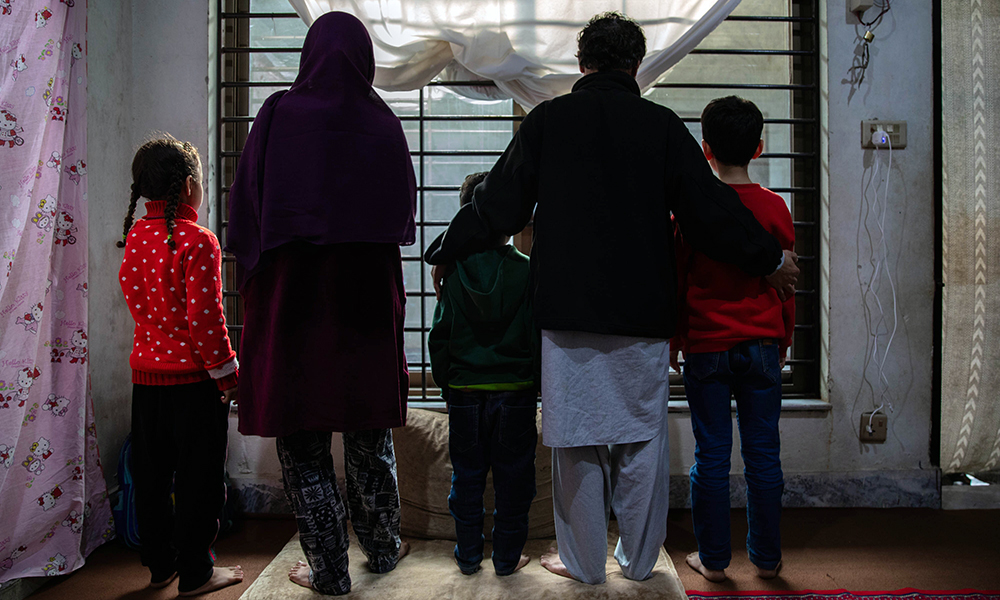
Pakistan will repatriate nearly 20,000 Afghan nationals currently awaiting resettlement in the United States, The Nation reported, citing official sources.
The move affects 19,973 Afghans living across Pakistan.
A federal directive will instruct provincial chief secretaries and police chiefs in Punjab, Sindh, Khyber Pakhtunkhwa, Balochistan, Azad Kashmir, Gilgit-Baltistan, and the Islamabad Capital Territory to begin the repatriation process immediately.
Authorities will also share verified data of the affected individuals with relevant departments to support implementation.
Following the Islamic Emirate’s return to power in 2021, more than 100,000 Afghans fled to Pakistan, many of whom had worked with the US and UK governments, international organizations, or aid agencies.
Thousands have remained stranded in Pakistan for over four years while awaiting US resettlement clearance.
Prospects for relocation have dimmed amid a suspension of case processing by the US administration, according to The Nation.
Under Pakistan’s Illegal Foreigners Repatriation Plan (IFRP), all Afghan nationals still awaiting US relocation will now be returned to Afghanistan.
-

 Latest News3 days ago
Latest News3 days agoAfghanistan to grant one- to ten-year residency to foreign investors
-

 Sport4 days ago
Sport4 days agoIndonesia shock Japan to reach historic AFC Futsal Asian Cup final
-

 Sport5 days ago
Sport5 days agoMilano Cortina 2026 Winter Olympics: What You Need to Know
-

 Sport3 days ago
Sport3 days agoIran clinch AFC Futsal Asian Cup 2026 in penalty shootout thriller
-

 Latest News3 days ago
Latest News3 days agoAfghanistan says Pakistan is shifting blame for its own security failures
-
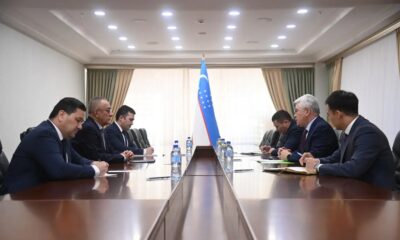
 Latest News5 days ago
Latest News5 days agoUzbekistan, Kazakhstan discuss cooperation on Afghanistan
-

 International Sports2 days ago
International Sports2 days agoWinter Olympics gain momentum as medal table takes shape
-

 Latest News5 days ago
Latest News5 days agoAfghanistan facing deepening hunger crisis after US Aid Cuts: NYT reports






